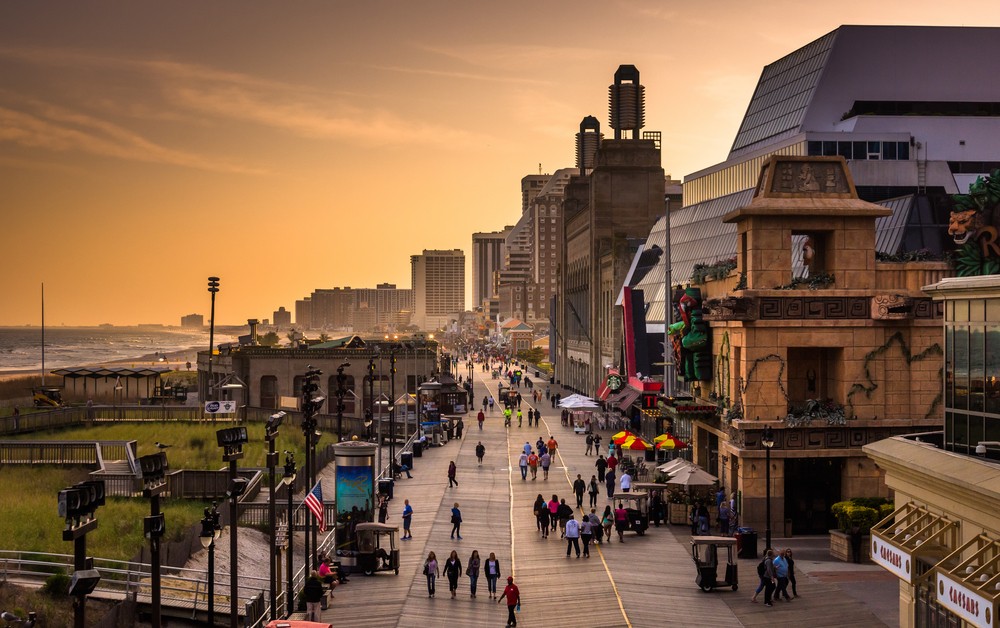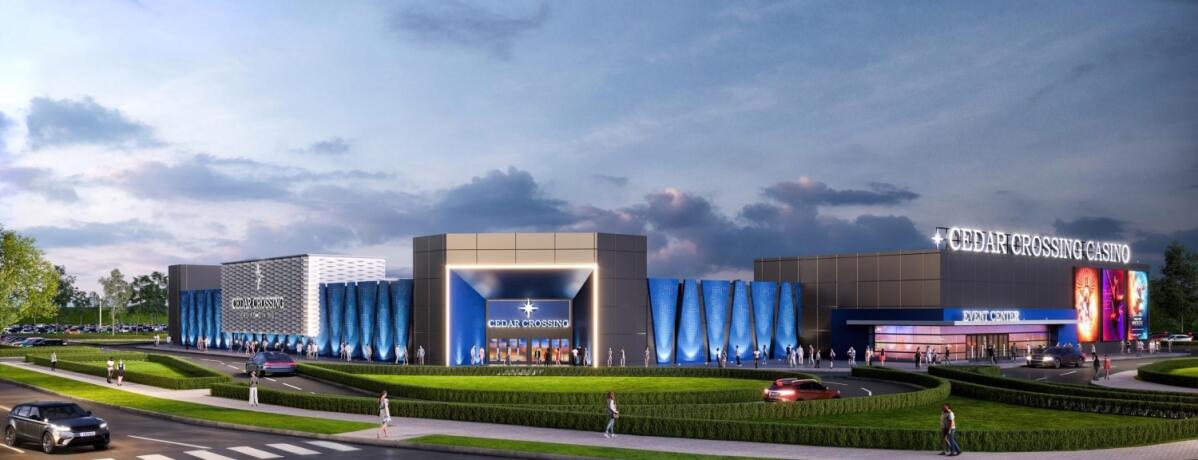When a bright-eyed Charlie Murphy moved from Wexford to Dublin to pursue her dream of acting, she delved into city life with gusto. “In your early 20s you end up bopping around, moving in with different friends. You end up clocking up lots of different areas that you’ve lived, like a bingo card,” she recalls with a nostalgic haziness. “I lived on Camden Street for a while, over Roma II. And Clanbrassil Street. I also lived on Dame Street, over Brogans – we called that one ‘the crack den’.”
Almost two decades later, during which time she rose from her breakthrough in Love/Hate to shows including Peaky Blinders and Happy Valley, she’s speaking today from her home in Stoke Newington in London, where she lives with her fiance, director Sam Yates.
That’s not to say the 37-year-old has stopped “bopping around” altogether. Most recently, the couple tried a four-year stint in the increasingly hip coastal town of Folkstone. “That was wonderful in some ways – the food, the harbour, the sea, it’s all gorgeous,” she says. “Though during Covid, it did feel like Alcatraz sometimes. You could see France in the distance, so you knew the world was just over there, but you just couldn’t get to it.”
We speak on the phone, with Murphy as sprightly as I’ve ever heard her in our years of chatting. It’s evident that she now feels more settled in London, though work still pulls her way from home – a case in point being her new TV drama, Safe Harbor.
Filmed last year over the course of a few intense weeks, the thriller saw Murphy and many of the series’ Irish contingent – such as Jack Gleeson, Colm Meaney, Pauline McLynn and Ian Lloyd Anderson – upping sticks to their filming location of Rotterdam.
“We had such a fun time on location there,” she says. “And you’re literally 20 minutes from Amsterdam, so at weekends we’d pop over there. It was an immersive experience.”
Written, created and directed by Mark Williams, the brains behind Netflix’s sleeper hit Ozark, the series sees Murphy play Sloane Walsh, an emerging figure in a family of drug traffickers. While Irish drug gangs make for familiar TV, it’s devilishly delightful to see a woman at the forefront of the operation.
“Sloane is daughter of an Irish crime family in Ireland who are branching out,” Murphy explains. “Her father’s given her a couple of years to progress the family business and she’s chosen to go to Rotterdam with her younger brother [a mustachioed Gleeson] to set up shop where all the shipments come in. Her mission is to enlist the help of a couple of techie guys [Alife Allen and Martijn Lakemeier] to intercept the drugs and ship them back to Ireland.”
Meaney and McLynn play the patriarch and matriarch of the criminal family, and the pair were “jigsaw-puzzle perfect together”, says Murphy.
Shot mostly at night, you’ll notice the stylistic ambition of Ozark, with “beautiful blues and dark red drenched tones throughout”, says Murphy. “But there’s also a layer of comedy on top, which I find so amusing. And working with Jack Gleeson as my brother was a dream.”
While they hadn’t met before this project (Gleeson took an extended break from television work after his turn as Joffrey Baratheon in Game of Thrones), they’re now fast friends, not least because he’s a Stoke Newington neighbour.
Safe Harbor came at a key time in Murphy’s life, which was uncannily reflected in her character of Sloane, as the actor explains: “Later in the series, when she’s trying to be the new face in this family dynasty, she decides that she wants to have a baby too. That was strange timing, because while we were filming that, I was doing IVF – it was like art imitating life.”
While we’ll need to keep watching to find out if the Walsh family continue into another generation, Murphy’s first baby is due at the start of May.
“I’m feeling really good right now,” she says. “I’m getting a lot of nesting done. I have my label maker out, I’m clearing out the junk drawers and putting things in order. And I have to say, I’m really enjoying it.”
Does she remember the moment she found out she was pregnant?
“It was on an autumn Sunday morning, at home with my partner – being in your own environment is always a bonus,” she says. “I was happy obviously, but I did have to remind myself not to celebrate too much. Maybe it was PTSD of doing a few rounds of IVF. That was gruelling. It was so intense that I was welcoming all the symptoms that come with a pregnancy, I was just so happy to be out of the rounds.”

The pregnancy was hard won, involving five rounds of IVF over two years. “There were times when I had more resistance and bandwidth to do it and other times felt more intense, or I had lower reserves,” says Murphy.
“It felt like I was at the casino and throwing the dice to invest in another round, emotionally, financially and time-wise. And when the last couple of rounds didn’t result in anything, I felt cheated. It felt tough, arduous, and monotonous.”
This difficult time involved a miscarriage too. “It’s so common,” Murphy says. The key thing that got her through it – and the reason she speaks openly about it today – was the solace she found in others sharing their experiences.
“At the start I probably would have been very private about doing IVF, but I’m glad that people are talking about it now. Reaching out to other women that have been through it means you don’t feel so alone.”
Murphy’s long-time partner Yates – who most recently directed the Olivier-winning theatre production of Vanya, starring Andrew Scott – proposed “on one of our anniversaries a couple of years ago”, but their wedding plans are on hold until they’re settled into their new life as parents.

Work, however, waits for no one. After “a little bit of bubba time” this year, and the release of her next TV project Atomic (an action-packed caper for Sky, also starring Alfie Allen), she’ll be back in Ireland shooting a yet-to-be disclosed film.
That will be welcome: her visits back to her family – she’s one of five siblings – usually only happen at Christmas, but the family are close-knit. “I’m always talking to someone in the family,” she says. “It’s so important and so underestimated, someone knowing the minutiae of your every day. That boring banality is actually very satisfying.”
It was Murphy’s family – particularly her parents, who ran a hairdressing salon – that encouraged her passion of acting when the family upped sticks from Enniscorthy (where Charlie was born) to Wexford. There, Murphy joined amateur drama groups, which honed her talent enough for her to attend the Gaiety School of Acting, the reason for her move to the capital.
After appearing on The Clinic (a rite of passage for budding actors in the noughties), she landed her first big break in seminal gangland drama Love/Hate, navigating her character of Siobhán Delaney through a difficult story arc with such care that she earned the first of her four Iftas when she was 25.

With a robust repertoire of work since those Dublin days, she’s been consistently on screen since. Her malleable look – dark hair, soft features – acts as a blank canvas for her characters, from the steely Jessie Eden, a working-class revolutionary in Peaky Blinders, to Anne Brontë in To Walk Invisible, a BBC drama about the Brontë sisters.
“I’ve been lucky and managed to be working even when there are naturally quiet moments,” she reflects. “With Covid, I’d just started Halo [the TV adaptation of the video game], and that took me all the way through. When there was the bottleneck with the writers’ strikes in America, that’s when Safe Harbor happened. A lot of friends did feel that pinch.
“I’ve never had much of a strategy in place for my career. Looking back, you can see a chain reaction – like David Odd, the cinematographer for Love/Hate got me my first job in the UK, which was The Village. That led me on to the same casting director who did Happy Valley, and so on. It’s a case of meeting the right people and work begetting more work.
“The only conscious thing I did when I didn’t have much experience outside of Ireland was to pause theatre – even though I loved it – to be more available for TV,” she says.
What attracted her to TV more? “I grew up with theatre and I wasn’t on camera until after I graduated, so it felt that I really liked it, I wanted to explore it more, and there was more opportunity for me there,” she says.

Television – like many other industries – is in a state of flux as it prepares to balance a new era of challenges. The phrase “survive til ’25″ was last year’s mantra, but tightened purse strings, an incoming tech revolution, higher audience expectations and an exodus of talent from the business are taking their toll on creativity.
“I’m very nervous about AI,” Murphy says. Her other key concern is the risk-averse nature of the industry currently (a recent analysis found that of the top 100 movies and TV shows in 2024, only one-third were original stories, rather than based on existing books, video games, or franchises). “I just want to protect independent features and smaller productions that many of our careers have been built on,” says Murphy.
“I worry that they won’t get funding or their voices become diluted. Their different takes are needed, but the less money there is, the more the industry wants to create the same thing over and over.”
“Stuart [Carolan, creator of Love/Hate] and David [Caffrey, director] were brilliant examples of carrying their vision from start to finish – not a lot of execs got involved there.
“Safe Harbor is another example – that is all Mark Williams’s voice. There wasn’t a lot of altering of scripts or dilution. That kind of production felt old school to me.”
[ AI panic: Artists angry that a machine is learning from their work should relaxOpens in new window ]
Murphy is also preparing personally for a new era of challenges. How does she feel being a mother will impact her career? “I see actresses with kids on set all the time now so hopefully it will impact it in the most rich and incredible way possible. I can’t wait to see.”
All episodes of Safe Harbor are available to watch on the Virgin Media Player.




